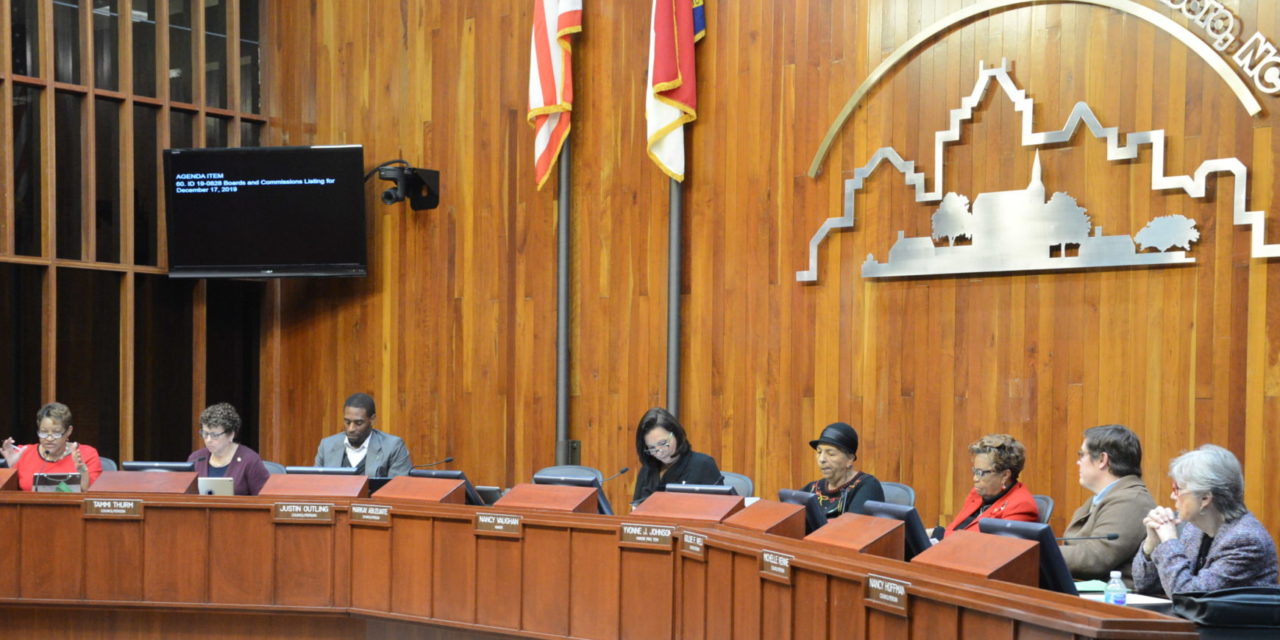The $500,000 mental health program contracted by the City Council on Tuesday, Dec. 17 revealed the inner workings of the City Council.
During the discussion of the program, Councilmembers Justin Outling, Tammi Thurm and Sharon Hightower all asked that the City Council hold a work session on this program that is taking the city in a brand new direction. The City Council has never had a work session on the new mental health service that the city will now be providing.
As was noted by Outling, providing mental health services has always been a function of Guilford County. Until 2013, Guilford County had a large mental health department. Those services are now provided through the Sandhills Center, which provides mental health services for Guilford and eight other counties.
Outling asked City Manager David Parrish if the Sandhills Center, the government-funded entity responsible for providing mental health services for this area, had been contacted about this new mental health service being contemplated by Greensboro.
Parrish said that Sandhills could have bid on providing the service, but he did not say that the government-funded agency that the taxpayers of Greensboro are already paying for had been asked for assistance or advice.
Parrish did indicate that the city staff felt that the City Council expected them to move as quickly as possible to develop a brand new program to respond to mental health crisis situations.
But the City Council never directed staff to move quickly or slowly. In fact, the City Council offered no direction to staff, because the City Council can only act at a public meeting, whether it is a work session or a regular meeting, and the City Council took no such action.
From comments made by City Councilmember Michelle Kennedy and Mayor Nancy Vaughan, it was apparent that individual members of the City Council were pushing staff, but individual councilmembers have no authority to direct staff, only a majority vote of the City Council can do that.
Holding work sessions and public meetings where matters are discussed and ideas fleshed out is not how this City Council does business. Nor does it do business through committees, which are also subject to the North Carolina Open Meetings Law.
The business of the city is being conducted by small groups of councilmembers behind closed doors, and even other city councilmembers, such as Outling, Thurm and Hightower, are not kept informed of what the city is doing.
No member of the City Council should be surprised when the city decides to launch a new $500,000 program. Yet, as Outling said repeatedly, he didn’t know about the $500,000 contract until the agenda was released on Friday, Dec. 13 before the Tuesday, Dec. 17 meeting.

